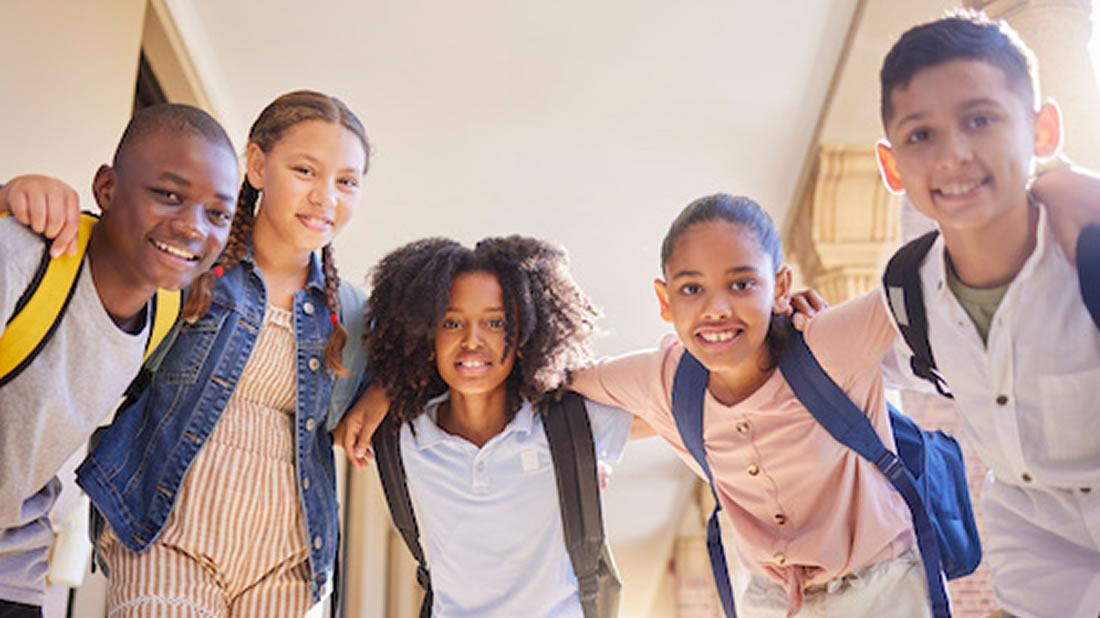Empowering staff and students with a sense of belonging
The relationships we cultivate with students and staff members are the most powerful tool we have to create the sense of belonging
Key points:
- When students feel supported, they’re more likely to share their struggles
- Mental health partnerships can better support students and staff
- See related article: How to build relationships with students
- Get the latest news on student and staff well-being by visiting eSN’s SEL & Well-Being page
Belonging is a fundamental human need. We are all searching for a sense of connection with the people and places in our lives. Students and school staff are no different, so it’s crucial to ensure learning environments foster a sense of belonging.
When students have a strong sense of belonging, they are more likely to be engaged in school and to perform well academically. Unfortunately, new data shows that only 62 percent of high school students feel connected to others at school, and nearly one-third of students experience poor mental health.
In addition, the latest federal data found that 33 percent of school leaders noticed an uptick in violence amongst students and students experiencing anxiety and attention-deficit hyperactivity disorder over the last year–many attribute the increase to the pandemic and its lingering effects. There’s simply no time to waste; we must make our schools welcoming, safe spaces for students and staff alike.
Build trusting relationships with students to create a culture of belonging
Trust is the cornerstone of belonging. Students need us to be accessible, dependable, and trustworthy. When students trust us, they’ll be more willing to be honest about their struggles and help us stay in tune with what’s happening in the halls that we don’t see.
Celebrate student backgrounds and cultures
Celebrating cultures is more than just hosting an event; it’s about consistently honoring the ethnicity, background, and experiences of the students we serve. By recognizing the diverse backgrounds and cultural traditions of the school’s communities, we create avenues for students to share and celebrate their experiences openly.
Encouraging open dialogue and allowing students to lead discussions about their cultures fosters a climate of true inclusivity. Celebrating and embracing students’ lived experiences greatly increases students’–and their family’s–feelings of belonging.
Engage the community as a partner
Schools that focus on belonging recognize the power of community engagement. For example, when a community member talks openly about a challenging topic, such as their family’s experience with substance abuse, it can create a sense of belonging and validation for students coping with a similar situation. School advisory councils that involve students, families, and staff as decision-makers influence school operations and bridge the gap between students and their communities.
Empower school counselors through collaborative partnerships
Relationships take time to foster. Students need to be seen, and staff need the time to truly see them. When staff are overburdened, as many are nationwide, it hinders their ability to build meaningful relationships with students. And when a student needs care outside of the scope of school resources, staff are often tasked with finding the care they need. On average, it takes up to 60 phone calls to connect a student, family member, or staff member to the proper mental health resources.
That’s where partners providing mental health care coordination services come into play. Collaborations like this can alleviate the burden on school staff and save them countless hours of tedious work. What’s more, a third-party partner can also provide mental health support to school staff. School staff are the backbone of a school community, and their mental health and well-being are essential to a thriving school culture.
After a prolonged period of disconnection, building strong relationships is more important than ever. Dr. Bruce Perry, in his book The Boy Who Was Raised As a Dog: And Other Stories from a Child Psychiatrist’s Notebook says, “Relationships are the agents of change and the most powerful therapy is human love. People, not programs, change people.” As you reflect on the practices in your school community, remember that the trusting relationships we cultivate with students and staff members are the most powerful tool we have to create the sense of belonging.
